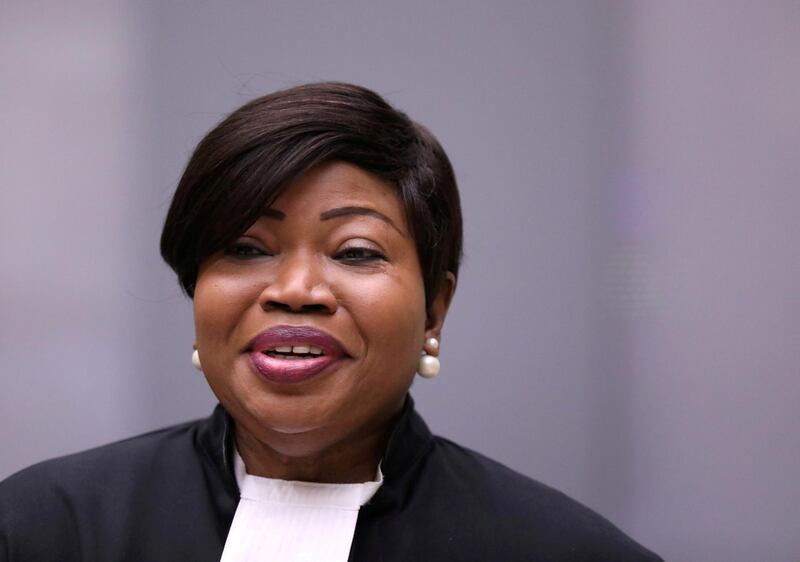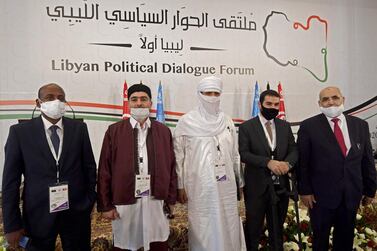International prosecutor Fatou Bensouda warned on Tuesday that suspected war criminals in Libya would face justice, regardless of the breakthrough peace talks in Tunisia this week.
Ms Bensouda, the chief prosecutor of the International Criminal Court, welcomed last month’s ceasefire deal for Libya and talks that began on Monday, but said a peace agreement would not exonerate wrongdoers.
She told an online UN Security Council meeting that investigations into mass graves found around Tarhouna and southern Tripoli had progressed significantly, with 100 bodies exhumed in the past six months.
“Victims of atrocity crimes in Libya must be reassured that, notwithstanding any ceasefire or future agreement, individuals alleged to be responsible for serious crimes falling under the jurisdiction of the ICC will be promptly arrested and surrendered to the court to face charges for the alleged crimes,” Ms Bensouda said.
It is hopes the UN-backed talks between Libyan groups will end almost a decade of chaos by arranging elections and bringing in a ceasefire agreed to last month in Geneva.
The ICC has three active cases in Libya and more cases could be launched, Ms Bensouda said.
Meanwhile, Gunter Sautter, Germany’s deputy UN ambassador, on Monday said diplomats were considering whether to lift travel bans, asset freezes and other sanctions to encourage Libya’s warring parties to reach a peace deal in Tunisia.
Mr Sautter, chairman of the UN sanctions committee on Libya, told The National that he was "ready to impose sanctions" on anyone who broke an arms embargo that was introduced for Libya in 2011.
“We are also looking at whether sanctions can be helpful as a tool to make sure that the peace talks in Tunis are successful,” he said.
The talks are the latest in a series of meetings intended to end the power vacuum left by the 2011 removal and killing of Libyan dictator Muammar Qaddafi, and the attempts by militias to fill it.
Last month’s ceasefire and intense international pressure added impetus to the latest talks. The ceasefire allowed for lucrative oil production to resume.
The UN says the talks are the best chance in years to end fighting in Libya, which has been split since 2014 between rival factions in the west, held by the Government of National Accord, and the east, home to Field Marshal Khalifa Haftar’s Libyan National Army.
UN Secretary General Antonio Guterres has appealed to the 75 Libyan delegates chosen by the world body to support the process.
Mt Guterres's acting envoy, Stephanie Williams, said the road ahead was “not paved with roses and it will not be easy”.







